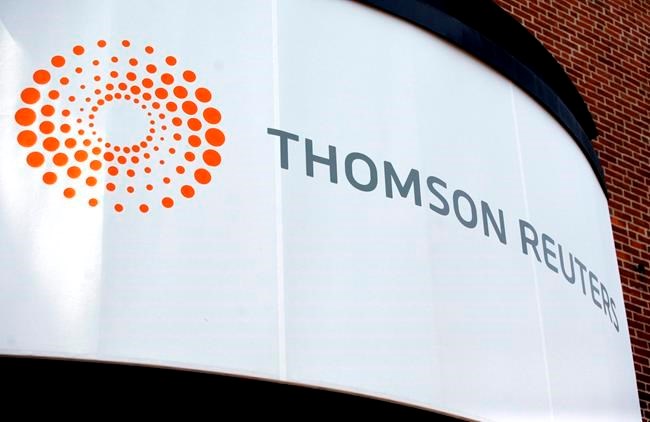MONTREAL — A Quebec research institute says some of Canada's biggest companies have transferred billions of dollars in profits to Luxembourg to avoid paying domestic taxes.
The research published Thursday by IRIS says 59 Canadian companies — including 33 headquartered in Quebec — transferred $119.8 billion in net profits to the European low-tax country over a period of about 10 years.
Colin Pratte, a researcher with IRIS and the study’s co-author, said Luxembourg was chosen for the research because, unlike other tax havens, it makes financial information publicly available. While studying those disclosures, researchers concentrated on the period between 2011 and 2021, during which the transferring of profits rose sharply, he said.
‚ÄúWhat we realized ‚Ķ is that the phenomenon doesn‚Äôt only still exist, but it‚Äôs accelerated in recent years,‚Äù he said. ‚ÄúTransfers increased by an average of 20 per cent per year between 2011 and 2021, and in 2021 alone, we‚Äôre talking about $20 billion that was transferred by Canadian companies to Luxembourg,‚Äù he said in a phone interview.¬Ý
Many companies transfer wealth through a process known as intra-group debt, which allows money to be loaned between subsidiaries in different countries in a way that increases a company’s debt and interest costs — and reduces its taxable income — in higher-tax jurisdictions, he said.
The companies listed in the study operate in several sectors including finance, natural resources, food and technology, and include big names such as Thomson Reuters, Alimentation Couche-Tard and Saputo Inc.
The study notes that, unlike tax evasion, tax avoidance strategies are legal. However, the researchers contend they violate the "spirit" of the law because they permit companies to pay ultra-low taxes in jurisdictions other than where the majority of their economic activities occur.¬Ý
Pratte said a quarter of the profits transferred in recent years come from companies in the food sector, which is particularly concerning at a time when households are struggling with the rising cost of food.
Representatives from Couche-Tard and Saputo Inc. were not immediately available for comment, while Thomson Reuters declined a media request.
The researchers said some companies on the list have received public subsidies in Canada, such as COVID-19 wage subsidies.
As an example, IRIS wrote that CAE Inc., a Montreal-based multinational in the aeronautics sector, transferred $99.2 million to Luxembourg in 2020-21 "while receiving $115.7 million from the federal COVID-19 wage and rent subsidies for businesses."¬Ý
In an email, CAE's director of public affairs and global communications wrote that the company accessed government relief measures during the pandemic and "used the funds to substitute for cost-saving measures and alleviate some of the impact on affected employees."
"In regards to our entity in Luxembourg, it is an inactive holding company. It is not part of tax planning," Anne von Finckenstein wrote.
Pratte said tax avoidance strategies, while legal, deprive Canadian governments of revenue that could be used to pay for services for citizens. At the very least, he believes, Canada could have followed the lead of other countries such as France, Poland and Denmark, which took steps to prevent companies that avoid paying domestic taxes from receiving public subsidies.
"It should be a given that a company that isn't paying its fair share of taxes shouldn't be able to touch public funds," he said.
The study says it’s not possible to measure how much potential Canadian tax revenue has been lost, because the profits transferred to Luxembourg come from companies' activities in multiple countries, and are sent in various forms — such as dividends or royalties — that are taxed different ways.
Pratte said the study, while as thorough as possible, doesn't capture the full scope of tax evasion. He notes that it only deals with one tax haven ‚Äî Luxembourg ‚Äî and that their list of Canadian companies operating there may not be complete.¬Ý
He said Quebec's over-representation on the list is based on the fact that the researchers made a special effort to identify companies from the province, and not necessarily because the province makes more use of tax strategies in Luxembourg.
Pratte said the problem of tax havens has been documented in Canada for decades, going back to a Canadian auditor general report in 1992, adding that he believes successive governments have failed to enact legislation to tackle the problem.
"We often describe the problem of tax havens, of tax avoidance as being a complex technical and legal problem when, in fact, it's a political problem," he said.¬Ý
This report by The Canadian Press was first published Nov. 2, 2023.
Morgan Lowrie, The Canadian Press




